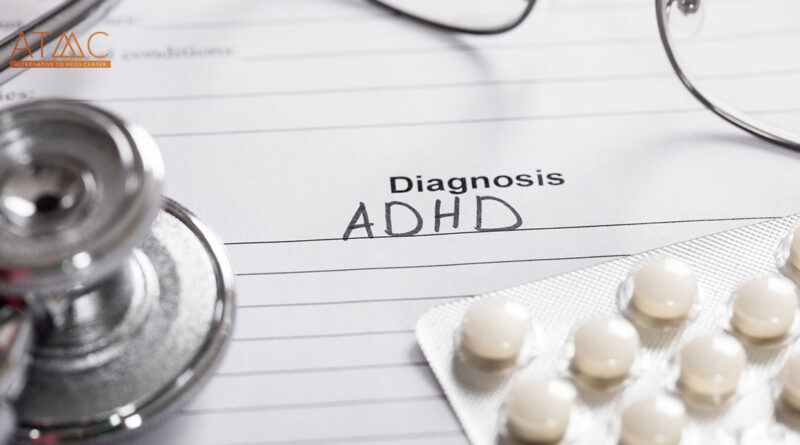ADHD & Hormonal Changes: A Lifelong Battle
According to a new ATTitude study on hormonal changes, ADHD symptoms fluctuate with estrogen and testosterone levels as they rise and fall throughout life.
Survey
According to a survey of 1,829 ADHD adults, hormonal fluctuations can worsen the symptoms of ADHD for both men and women. ADDitude respondents from both genders cited similar challenges as they experienced hormonal changes during puberty, pregnancy, and postpartum.
These findings indicate that the traditional understanding of ADHD, as a childhood condition that resolves with puberty, was completely backward.
Both women and men with ADHD experience the most severe symptoms between 50 and 59 years old — that is, during menopause or andropause. Women rated ADHD symptoms between 50 and 59 years old at 4.24, while men rated them at 4.14. Children’s symptoms were rated at 2.79 and 2.9%, respectively. These ratings may be affected by fading memories, late diagnosis, or recency bias. However, ADDitude users’ stories support the notion that ADHD becomes more prominent with age.
Reason
One Californian diagnosed at age 62 with ADHD wrote: “The reason that so many women do not get diagnosed until after menopause is because estrogen levels fall, leaving our minds when they need it most.” “Estrogen, dopamine, and synapse are all connected! Estrogen is needed to move the dopamine in your brain’s center to the frontal cortex, where executive functions are performed. Menopausal women are often left feeling like they have lost their minds.
A survey found that the rate of inattentive type ADHD is nearly the same for both men and women, affecting 36.6%.
Despite the differences, both genders share more than one might think. Women with ADHD are more likely than men to suffer from debilitating co-morbidities. According to the Attitude study:
- Anxiety was experienced by 77.6% of women (average age 46.4) and 68.9% of men (average age 47).
- Depressive Disorder affects 67.9% of women and 61.3% of men.
- Migraines were cited by 25,8% of women and 13,4% of men.
- Eating Disorders affect 16.5% of women and 7.9% of men.
The ATTitude study revealed other important gender differences that are influenced by hormone spikes and dips.
Hormonal Changes in Puberty: ADHD
When testosterone production increases by nearly 30 times 1 in men, this is when ADHD appears.
- 61% of respondents have concerns about their academic performance.
- Anger or hostile behavior: 49%
- Risk-taking behavior 42%
These symptoms mark adolescence for women with ADHD:
- Feelings or depression of sadness: 70%
- Rejection-sensitive dysphoria: 63%
- More worried or anxious: 58%
Two-thirds (two) of respondents to the survey said that they experienced PMS or PMDD symptoms.
- Irritability: 80%
- 79% of people experience mood swings.
- Cramping or discomfort 79%
- Tension/anxiety: 68%
- Lack of concentration/focus: 66%
A 39-year-old woman with ADHD, autism, anxiety, and hypersensitivity to rejection said, “For me, PMDD was a combination of suicidal thoughts, increased meltdowns, shutdowns, and a decreased emotional regulation.”
In adolescence, women were also more likely to disclose social anxieties, Self-harm, and eating disorders. “I did not show any signs that I had ADHD or Major Depressive Disorder before I started menstruating. “Then everything went crazy,” said a woman diagnosed with the Disorder just two years earlier.
In adolescence, men were more likely than women to report problems with anger management, hypersexuality, and illegal drug use. According to the Attitude study, testosterone levels peak around 20 years old, when problems such as procrastination and emotional dysregulation are most prevalent.
One 31-year-old male with combined type ADHD wrote: “I’ve always had time management, but masturbation and porn became my dopamine releases in adolescence. After the pleasure, it became exhausting.” It’s been nearly 20 years since my masturbation addiction began, despite multiple attempts to overcome it.
Hormonal Changes in Pregnancy: ADHD
During pregnancy, women produce more progesterone and estrogen than they do throughout their lives. According to 20% of the women who responded to the survey, increased hormones brought about greater focus, motivation, organization, and sleep.
One woman, aged 34 in the UK, said: “My sleep issues completely resolved during pregnancy (I could fall asleep easily and at a normal time in the evenings and wake up in the mornings when I needed to).” “I felt more productive and focused than I ever have in my life.”
Women who stopped taking stimulant medications during pregnancy (98% said that they did) reported no change in ADHD symptoms. ADDitude users also reported that their ADHD symptoms worsened during pregnancy, with fatigue, poor memory, emotion dysregulation, and sensitivity at the top of the list.
Hormonal changes: postpartum and ADHD
The rate of postpartum depressive symptoms among our respondents has risen to 61%. According to ATTitude, postpartum symptoms lasted approximately one year and included:
- Cry spells: 76%
- 72% of people feel worthless, guilty, or inadequate.
- The mood swings are 66%
- Irritability: 62%
- Lack of concentration: 58%
- Sleep problems: 57%
Postpartum depression still affects a 49-year-old woman with inattentive ADHD. I didn’t want my child to be held and actively tried to give him to others during the first weeks. I was sure I wanted to do it again because this wasn’t the outcome I expected… I feel like I was robbed, but I’m closer to my son than ever. He is awesome and gives wonderful hugs. “Maybe that makes it up a little.”
Nearly half of Attitude respondents reported not receiving any treatment for postpartum depressive Disorder, whereas 41% received antidepressants while 20% received therapy. “I thought that I was a bad mother for feeling the way I did. So I masked these issues,” said a 50-year-old mother with ADHD from Colorado.
The nurses who spoke with me did not recognize the postpartum depressive Disorder and said it was likely a normal drop in hormones, but the situation never improved,” said a 36-year-old mother from Pennsylvania.
ADHD and Menopause: Hormonal changes
In the year 2022, addeditude surveyed nearly 4,000 women about ADHD symptoms during menopause. This is when estrogen and progesterone production drop. The survey found that 70% of women felt ADHD was a “life-altering” condition in their 40s or 50s. This finding is echoed by the latest Attitude study, which found half of the women rated ADHD as “extremely serious” during menopause.
They said that the most severe symptoms of menopause were:
- 79% of people procrastinate and have poor time management skills
- Working memory problems: 74%
- 72% of people report feeling overwhelmed.
- Greater disorganization: 70%
“Menopause was also the time of my ADHD diagnosis. I started medication, I had 1-on-1 and group therapy and now I have better coping skills than ever before,” said a woman aged 55 who was diagnosed with ADHD 4 years ago. “The sadness for what I’ve lost and my struggles is still there. But I feel like I have gained wisdom, self acceptance, and awareness.”
Andropause occurs when testosterone levels in men drop over time. About three-quarters of Attitude respondents over 40 said they had experienced andropause.
- Procrastination & Time Management: 79%
- Feelings associated with sadness or depression: 70%
- Work performance issues: 68%
- Working memory problems: 67%
Many people find it difficult to blame dwindling levels of testosterone or any of the other factors that can affect a person’s life during this stage of life, such as divorce, death of parents or other family members, loss of job, health issues, or years of low self-esteem or a sense of failure.
One 61-year-old man described how andropause affected his mental health. “I felt uneasy and angry at the world,” he said. I was addicted to drugs and had a fear of failure in sexual relationships. I was bored or obsessed with things, frustrated, and trying to please others.
In my 40s and early 50s, self-doubt began to build up as I wondered why I wasn’t successful and why I was so isolated. “I was not feeling good about myself,” said a male 58 year old male who had noticed signs of anxiety, stress, and physical deterioration. He sought a diagnosis later in life after noticing these symptoms. This was a heavy weight of feeling no pride or confidence, not liking myself, and not being able to move forward.




